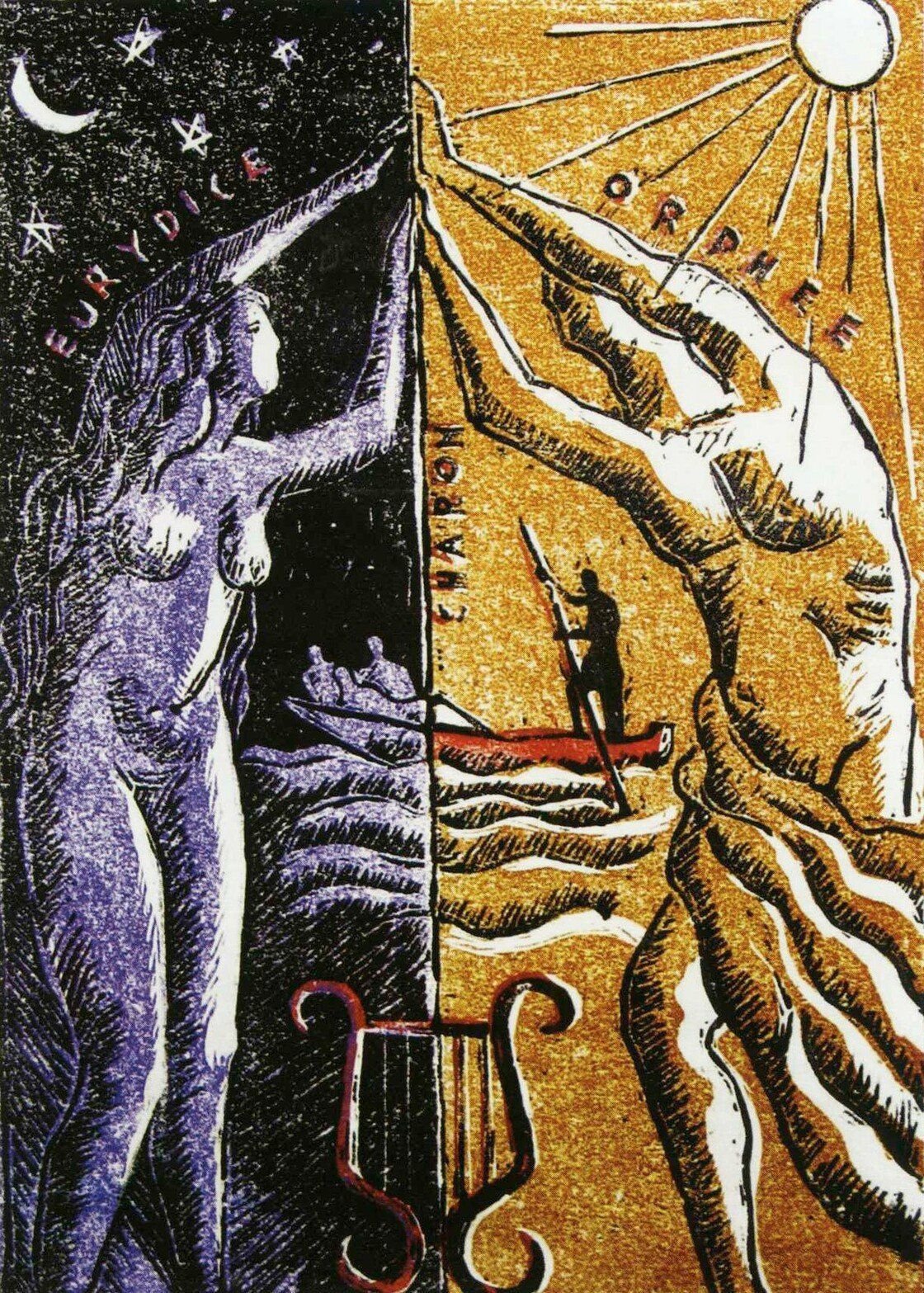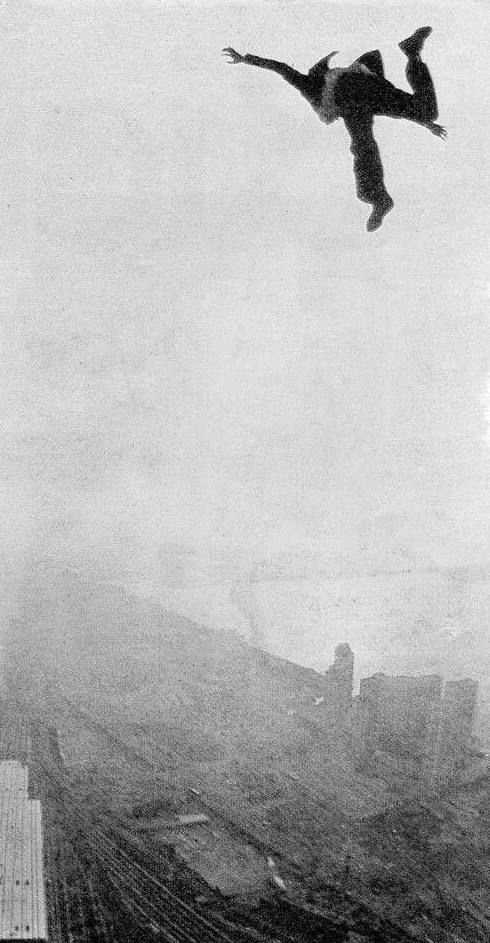Providence
Orpheus walks, his figure etched against the faint light ahead. Each step takes him closer to the boundary between divine and mortal, life and death. Behind him, Eurydice follows – silent, intangible, his muse and his torment. Hermes, trickster god, guides the way, keeping Orpheus’s gaze fixed forward. Yet within the poet brews a storm: the need to trust the unseen against the visceral desire to confirm its existence.
Orpheus is torn. The same hands that crafted his enchanting verses now ache with doubt. His poetry, birthed from loss, carries him forward, but a whisper from Hermes tempts him to falter. The urge to turn is not mere weakness, but blind indulgence.
Yearning to see what lies behind, even at the cost of destruction.
Eurydice holds the scent of love and bears the parcel. Her remembrance harmonized the poet’s lyre – and whispered how the zither sprung life upon the dead. Hermes vigils on the translation but secretly plots… Deity of the liminal and harbor for every handshake, yet puerile and impudent. He wishes the charmer to indulge his body in turning.
A posture, Orpheus’, that summons all his will and reason. Pacing onwards he gives up his freedom of movement, and is wary of the path at each step. He moves gathered in thought, the muscles of his back well behaved. Voluptuous as Rodin’s Thinker, he is condensed in a gesture, as if the body was nothing but a corpse after all.
A bent figure – one that Rodin sculpts in the Lost Wax. No dynamicity in the verge of creation, as if the graveness of the artistic act shall lay forever in the statue and shall never move. Orpheus argues the opposite. Why shall it stay still? How can freedom persist when grounded in bronze? Once molten, the cast refuses any crack of existence.
Like broken antennas to heaven, Orpheus’ prayers will suffocate in the underworld. He will show his cracks, and eventually turn. Eurydice will be gone before their eyelines will have met.
I am blind and you are my poet
Sculpt your words nude
Pain be your voice
Chronist of my fate
This time again, no prayer of use
Empty pleasure
Opium left to the fools.
Sarandis Karavousis, Eurydice and Orpheus.
Eurydice’s missed escape at the last mile of her lover’s crusade draws a tear - falling upon my left shoe on the way to the airport.
As the highway sprawls ahead, we take our choices in the blur of motion. The shape of control becomes a fleeting decision. How reckless can it be? I sit as the passenger, aware that the occasional indulgence occurs even to the most mindful of drivers, and quietly attend the surpassing of trucks in the inner lanes.
As we move, I am subject to my friend’s will. How intrusive are his thoughts, I wonder?
His driving is a butchered narrative. A few well-assessed excuses frame my apprehension, but too rarefied to condense fear. Novice mistakes. Braking softly while turning at highway speed, his corrections are mechanical, almost trivial, unworthy of comments on my side. Three years into his practice, my friend has perfected neither grace nor restraint. Clutched to my seat, my fate rests in this guy’s hands, reconciling with the idea of biting the dust at each miss.
I am passive to his ritual, oversteering on A8.
Sarah Charlesworth, Dar Robinson, Toronto, No. 8 of 14 from the series "Stills", 1980.
On the speaker, Providence decrees:
Deliver us from the gathering storm
Unworthy though we are
Leave us living safe and warm
And sheltered in your arms
A creepy suggestion on a sunny highway.
Indulgence seems a privilege for those who feel safe in the arms of the comrade before them. Is this guy killing or saving me?
Dressed for the plane I had to catch, I miss public transit connection. An indulgent delay on the run to the station, and I am now stuck in the middle. As my friend presses and releases the brake, my body lies under his foot’s jurisdiction, and there is no turning back. I chose to be here, arranged to get a ride, but at what cost? Did I sacrifice on the passenger seat?
As the road stretches out, reflecting our nonchalant attitudes like a mirror of asphalt, I linger on a question: was my body in control when it chose to surrender?
The car is on fire
And there is no driver at the wheel
Rages The Dead Flag Blues.
Godspeed You! Black Emperor, photo by Alison Scarpulla.
As we reach the toll booth, a police car waits beyond the barrier. They stop us and question our trip – their job is to race our pulses higher. In this pause, I see us reflected in the car window. Carrying the tension between motion and stillness we await our fate, and our bodies are bearers of Rodin’s constraint.
As we loot liberation, frozen under the judge, we exist as theater for an audience.
Our heads remain fixed forward, reflective and almost reverent to our officer. The passenger bears the suspended echo of scrutiny, lingering endlessly in the challenge that creation engenders. As deaf as Eurydice, I will not stop Hermes from guiding my friend to indulgence.
The driver pleads innocent, my record coheres and then we are set free.
Driving is an exercise that relies on a structure. Is there room for indulgence in there, or is its creativity limited to exceptional scenarios, I wonder? The question now is: is indulgence a means of creation?
Orpheus indulges before Hades, singing to tear something unknown from the city’s depths. His creation is a chant of hope, the end point of a laborious process.
Orpheus comes undone, he falters. His doubts take hold, and in that single act of turning, Eurydice vanishes. Their eyes never meet; the impenetrable white gates of Hades claim her once more. The inevitability of loss in the pursuit of the sublime.
Creation is born of meticulous labor, yet it is destined for death.
Creation thrives on a copious generative feeling – an ego-engraving crave that elevates art to a source of knowledge. As one evolves, something is left for the others, what is that? I wonder. Much like a poet setting their word free, the artist gets greedy in indulgence.
The line between control and surrender remains elusive, but perhaps, in our indulgences we find the space to create.
Godspeed You! Black Emperor, F♯ A♯ ∞, 1997.




